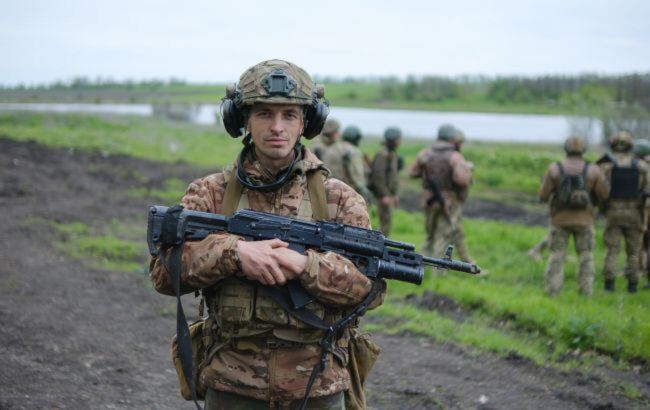JPMorgan models 4 scenarios for end of Russia's war against Ukraine
 Photo: JPMorgan outlines possible outcomes of Russia-Ukraine war (Vitalii Nosach, RBC-Ukraine)
Photo: JPMorgan outlines possible outcomes of Russia-Ukraine war (Vitalii Nosach, RBC-Ukraine)
Experts from JPMorgan Chase & Co., the largest US banking holding by assets, have released a report outlining several possible scenarios for the end of the Russia-Ukraine war. The forecasts emphasize the importance of security guarantees for Ukraine and potential concessions from both sides, according to the JPMorgan analysis.
The document’s assessments and forecasts regarding the Russia-Ukraine war are presented in a dedicated section titled "The Russia-Ukraine Endgame and the Future of Europe."
This analysis reflects the views of geopolitical analysts commissioned by US investment funds and major capital representatives, aiming to understand the risks for the banking sector’s operations.
The text outlines four possible scenarios, according to JPMorgan analysts, for how the war might end: the Belarusian, Georgian, Israeli, and South Korean scenarios.
Georgian scenario
American experts consider this the most likely scenario, where the active phase of the war is nearing its end. This scenario forecasts continued instability for Ukraine, particularly due to the limited real security guarantees from Western countries. It also predicts that within one or two political cycles, Kremlin influence in Ukraine will strengthen, potentially bringing Ukraine into Russia’s sphere of influence. JPMorgan compares this to the so-called Georgian scenario (assigned a 50% probability), involving gradual loss of partner support, stagnation, rollback of European integration, and a blocked path to NATO.
South Korean scenario
In this scenario, experts believe Ukraine’s situation will stabilize, but membership in NATO is not expected. Analysts assign a 15% probability to this outcome. Ukraine would retain control over roughly 80% of its territory and continue receiving some support from the US.
Belarusian scenario
The worst-case scenario envisions Ukraine capitulating under ongoing full-scale Russian military aggression. This Belarusian scenario (also given a 15% likelihood) foresees Ukraine becoming a vassal territory of Russia.
Israeli scenario
This scenario, with a 20% probability, assumes stable Western support for Ukraine and ongoing combat operations by the Ukrainian Defense Forces.
Key points in JPMorgan's forecasts
The analyses stress that the outcome of negotiations between Ukraine and Russia will heavily depend on each side’s willingness to make and accept concessions in a possible future peace agreement.
Additionally, the strength of security guarantees will influence the level of concessions and the risk of renewed conflict.
At the end of March, experts from the International Monetary Fund (IMF) updated their forecast for the duration of Russia’s war against Ukraine.
According to a Razumkov Center poll, 74% of respondents at the start of March 2025 believe Ukraine will win the war.

